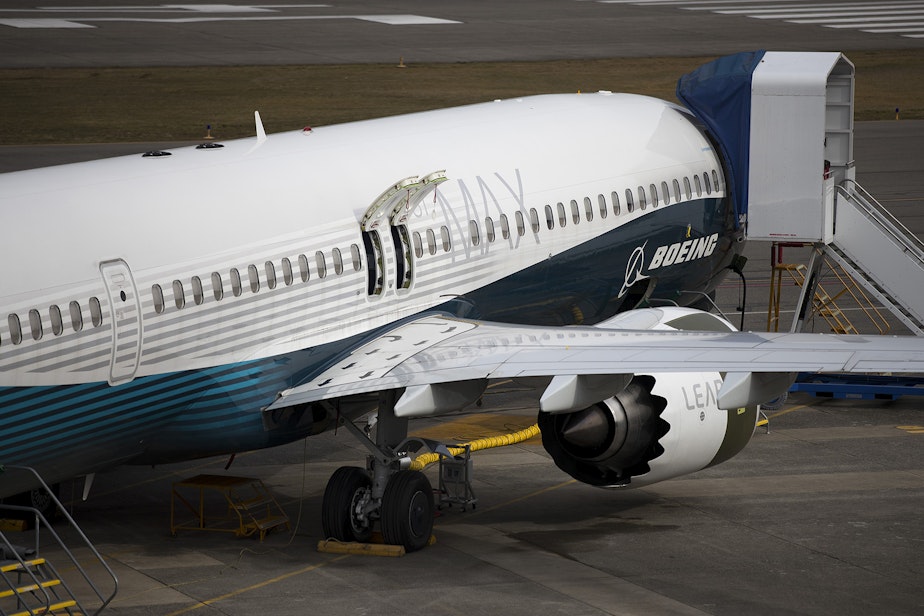Boeing: Pilots will no longer struggle with 737 Max

Boeing has begun its campaign to rebuild public trust in the 737 Max.
In an early morning news conference Wednesday, the company laid out the changes it is making so that pilots will no longer battle with the plane.
It happened the same morning that pilots, airlines and regulators met in Seattle to review Boeing’s changes.
And the news was embargoed until one hour before the start of a Senate hearing in Washington, D.C. that will focus on the role of the Federal Aviation Administration in the certification of the 737 Max.
Carolyn Adolph discusses the heat the FAA is feeling.
Two Max 8 jets have crashed over the past year, killing all aboard. Though investigations into these crashes are still incomplete, flight data pointed to similar flight patterns in the minutes before the planes crashed, shortly after takeoff.
Among the concerns: that U.S. regulators were among the last to ground the 737 Max and may have been slow to certify software changes Boeing made in the wake of the first crash, of a Lion Air jet in October.
The changes were outlined by Mike Sinnett, Boeing’s vice president of product development. They begin with the sensors that detect the angle of the plane in the air. Two sensors instead of one will now monitor the plane’s angle of attack.
Sponsored
“We’re comparing inputs from both angle of attack sensors, and when they disagree by a certain amount, we disable MCAS for the duration of that flight,” Sinnett said.
MCAS is the automated system that pushes the plane's nose down when it detects that the nose is too high.
If MCAS does turn on, it will do so only once: Pilots in two crashes struggled to take back control of the plane from the automated system. Now they will be able to hit a switch under the pilot’s thumb, to make MCAS stop.
“There are no known or envisioned failure conditions where MCAS will provide multiple inputs,” Sinnett said.
Sinnett also said the MCAS will never be able to muster enough force to overcome a pilot.



